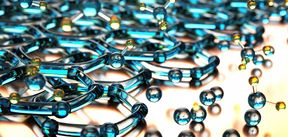AQP Seminar: The Nonlocal Superconducting Quantum Interference Device

When
Where
Event language(s)
Abstract:
dc Superconducting Quantum Interference Devices (SQUIDs) based on superconductor-insulator-superconductor (SIS) Josephson junctions form the basis of some of the most sensitive magnetometers available. This sensitivity arises from the dependence of their critical supercurrent Ic on the magnetic flux coupled to the SQUID loop. dc SQUIDs in such magnetometers are usually operated with a bias current above Ic, so that there is a finite voltage across each SIS junction in the SQUID. A SIS junction with a finite voltage generates microwave Josephson radiation that might affect the sample being measured. This is particularly true for micrometer and nanometer scale samples at millikelvin temperatures for which dc SQUIDs are frequently employed. Starting with an introduction to the superconducting proximity effect in mesoscopic NS devices, I will describe a dc SQUID based on superconductor/normal-metal/superconductor (SNS) junctions. The extended nature of the SNS junction in the SQUID enables new modes of operation that are not possible with SIS junctions, allowing measurement of the flux dependence of Ic with no voltage between the two superconductors of the SQUID, and hence no Josephson radiation.
References:
[1] T. Noh, A. Kindseth and V. Chandrasekhar, Physical Review B, vol. 104, pp. 064503, 2021.






